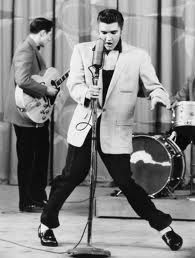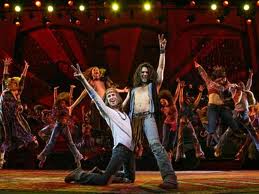WHAT YOUR PARENTS WOULD TELL YOU ABOUT SEX…
…IF THEY COULD REMEMBER!
Sex is everywhere these days. The ads sell it. Talk show guests brag about it. Kids strut it. And parents avoid it…except to tell kids not to do it.
I don’t think you really want a close and personal talk with us about sex. It seems still to be an area where parents and kids need to maintain some privacy. Don’t let the title of this chapter scare you. I want my privacy, and I want to respect yours.
You already know our concern about AIDS. We have talked freely in the house about our fears. Because of AIDS, information is freely available about the technical aspects of sex. Perhaps because of our fears for you, we probably convey the message that we don’t want you to be sexually active. The pleasures of sex you will discover over the years. My fears for you are founded in the mistakes of my youth, fortunately for me, mistakes that never proved fatal.
Mistake number one. Don’t let people my age mislead you. Girls my age were having sex in high school. Not everyone. But I personally knew three girls who openly admitted to it while talking about their boyfriends. However, we lived in the era of whispers. Sex was there, but everyone whispered about ‘it.’
Mistake number two. In our efforts to promote the equality of ‘humans’ we worked our hardest to prove that we were all the same. Blacks were the same as whites. Girls were the same as boys. Hindus were the same as Christians…and on and on…the equality of the human spirit.
Mistake number three. It’s not the sexual act that is wrong, we shouted, it’s the sincerity of the relationship that matters.
And I spent my first year of college putting those mistakes into action.
I went to college sexually naive, due to mistake number one. I am glad to live in a new climate of open discussion of sex. Dumb Is Better is only true if you are Jim Carrey. For the rest of us, dumber is stupider. When everyone is busy whispering about sex, you miss 90 percent of what is said and mistake 8 percent of what you do hear. Of the remaining 2 percent, half (at least) of the sexual discussion was false or misleading. How’s your math? When adults put down your generation as sexually promiscuous, we aren’t really able to say that we can go back to the ‘good old days.’
I went to college to prove that I could be just like a guy, mistake number two. One of the phrases of the 60’s you will hear us ‘older types’ repeat with a smile is, “One of my best friends is _____.” Fill in the blank. For whites, it was often, “I don’t believe in prejudice. One of my best friends is black.” Or…”Some of my best friends are guys.” “I have several good friends who are gay. They’re just like us, regular people.” We were big into ignoring differences. Finally, today we are comfortably acknowledging differences and appreciating the variety they give to life. In the ‘good old days’ we acted like differences caused prejudice.
Mistake number three was clouded vision. I liked my college friends because they were sincere. They weren’t impressed by money, clothes, cars, hair styles…we discussed values, ethics, philosophy. And today I STILL love my college friends for the same reason. But sincerity does not cure all evils. It is not the Pinesol of life that washes away the need for judgment, that eliminates the need to distinguish the rotten apple and give it the heave ho before it ruins the rest.
My mistakes follow like a laundry list.
My sorority pledge roommate arranged a September double date with two frat boys, real cute frat boys. We went to a drive-in movie. Now Ruth and I were about as far apart on the sincerity scale as possible. We ended up as roomies because they put all the sorority pledges together as roommates in the “normal” dorms, figuring that we had all pledged, would share sorority life together, and move out to sorority houses at the same time. They didn’t count on me. My sorority pledge week is another story, but the final line of it is that Ruth was in one of the top two bitchin’ sororities, and I wasn’t in any sorority. She was constantly worrying about the color of her socks, who she was going out with tonight, and when her Kansas boyfriend would call. My date that night was from one of the top two bitchin’ frats, and I think I was supposed to feel appreciative of that, as well as the date.
The four of us were in the car busy laughing, talking, and watching the movie, and I thought that was the point of the evening. The cute, bitchin’ boys had been thoughtful enough to bring their own Cokes. And a small bottle of clear something or other. Now, I had never had a sip of liquor before college. I was in college to be open-minded, and it wouldn’t hurt to try a drink. We laughed, talked, and watched the movie, as I sipped on my Coke. Before I hit the bottom of the glass, my eyes got droopy, the movie looked blurry, and it was hard to hold my head up. Everyone was still laughing, except me. I was concentrating on talking right and staying awake…and laughing appropriately, if I could. I did understand enough to turn down a second Coke. By the end of the movie, my head had cleared, and we headed back to the frat house.
Not wanting to embarrass my roommate for bringing a prude along, I went into the frat house where Ruth and her reeeeeeealy cute date disappeared, and I was left with my date. No, I didn’t want another drink, yeh, let’s talk, sure you can rub my shoulders, no I don’t think a back rub under my jumper will be that much better, I think I’m ready to go back to the dorm now. Ruth didn’t show up until the following morning. Her Kansas boyfriend called that night, I think. I woke in the morning under the sharp glare of the 10:00 a.m. sun with a throbbing head, a sour stomach, and cotton in my mouth. I took a drink of water and an aspirin and went back to bed, vowing never to feel that way in the morning again. I haven’t.
I don’t know how much vodka or gin was in the Coke that night, but my later years have assured me that it was more than a ‘good guy’ should ever offer a ‘good girl.’ I just didn’t know that kind of thing could happen.
Do you think I learned my lesson? Read on.
Ruth and I quickly learned that we should never share dating or much of anything else. So I went out on my own. One October night, bumping into an old high school friend that I trusted, I ended up accompanying her group to a party and meeting a guy friend of hers that seemed really nice. He invited me out on a date, and I thought it might be fun. The evening must have been nice, whatever we did. On our way home he asked if I wanted to see the view from Camelback mountain. Now, stupid is as stupid does. I said ‘yes’ because I wanted to see the view. Never mind that Camelback Mountain was a notorious smooching hangout for high school kids. If we ended up kissing a bit, well, I was busy being open-minded, and he seemed like such a nice person.
He actually was a nice guy, because during Christmas vacation he called to talk with me at my parent’s house and to apologize once again profusely for thinking I was one of “those kind of girls” and wanting to know if I would be willing to go out again now that he knew a good night kiss would be all that I was interested in.
November-January was filled with a serious boyfriend, Frank Whatshisname. No insult is intended, for I doubt he will remember my last name, my first name, or much else about me.
Somewhere in there, there was a sincere boy from northern Arizona who had come to college in the big city. He liked telling me about the big saint Bernard dog he missed back home, and I remember laughing and teasing late at night on the lawn outside of Grady Gammage auditorium. I think he was cute, but I know he was nice.
In March, dateless, Jeannie and I decided to go out and have some girl fun. Late that Friday evening we put on our high boots and velvet hot pants, and we went walking around the Tempe campus. Cars would honk, actually guys in cars would honk. Well, actually, guys started slowing down in their cars, pulling up to the curb, and stalling our walk for a real ‘conversation.’ Maybe this had to do with Jeannie’s 36-26-36 figure, low-cut frilly blouse, pre-hippie fluffed hair, and unbelievable female walk. I was definitely out of my league. Little did the guys know that we were only silly college girls and that Jeannie was the true, straight-laced Catholic girl out for a tiny bit of fun.
That particular evening should have made me wary of a fix-up date Jeannie arranged for me with a “really cute guy.” As she and I stood in the dinner line at the dorm, I asked her what he was like. Where had she met him? What did he like to do? “Oh, he’s so cute, and he lives in this neat townhouse that his parents own.” When he called to arrange to pick me up, he asked me to bring my swimsuit because there was a pool at the townhouse. Stupid is as stupid does. I took my swimsuit. Swimming sounded fun.
Swimming and kissing wasn’t fun. Getting out of the pool, later, even in clothes, kissing wasn’t fun. “Don’t you like to kiss,” he asked. “I like short dates,” I replied. Jeannie was right. He was cute.
In April, I met your dad. He was not a mistake. He was cute!
Your dad probably saved my life. There’s only so many “stupid is as stupid doeses” in a person’s life before you run into danger. Along the way, the “mistakes” of my era also helped to save me.
Yes, sex was whispered and women were held back. Sex was looked upon as special: good and bad special. Sex was especially bad if you were a girl before marriage. Boys were just boys. I don’t appreciate that attitude. Sex was especially bad if you got pregnant…before or (without) marriage. Children of unwed parents were “illegitimate,” as if to say they were “mistakes” who didn’t belong…unless they were adopted by married parents. I don’t appreciate any of these old attitudes either. I am glad for the sexual revolution that opened the door to information and healthy acceptance of sex.
But the good part of all of the above is that sex was special. It belonged to special people at special times in special places for special reasons. Maybe it shouldn’t have been so special, but it doesn’t belong in the gutter. I see sexual exploitation in the popular out-for-everyone-to-see culture that is vulgar, not because it is sex, but because it violates the dignity of individual people. I hear sexual lyrics in music and see them translated into MTV videos that turn me off, not because I feel I’m a prude, but because they suggest sexual truths that don’t exist. “If it feels good, do it.” Well, “it” does feel good. But the little word “it” includes a lot more than “sex.” Some people are trying to sell us on the idea that “it” equals the physical “sex” they have been able to describe so graphically. Ask yourself why they are doing this.
The second mistake I made was in thinking that everyone shared my naive attitudes. For some people, and at some times in our lives, sex is purely physical. If he wanted to see the view from Camelback or swim at night, then “I could dig it.” But boys are not the same as girls. We can want the same jobs, the same opportunities, the same access to money, credit, fame, glory…but we are not the same. In general, men have a different physical drive and a different need for sex than women.
Now, I know you both. You are good at finding the exceptions. But don’t let the exceptions eclipse the general rule. Unfortunately, science is showing that boys (and girls) are reaching sexual maturity at earlier ages today just as we are pushing boys and girls to delay family (sexual consequences) and marriage until educational goals and social maturity have been realized. There is a window of ages 14 – 22? when you are “wired” for sex and are being asked to “defer” sex, and boys do have more “wires.”
I didn’t expect that sexual needs would transform simple dates into elaborate rituals moving toward the sexual moment. I thought everyone (boys included) was waiting, just like me. In the Good Old Days the parents, culture, television, radio, and music were telling kids they should wait, even if it didn’t always happen. Today, there is a whole world out there telling you that you don’t need to wait, forget it, “it” feels good, don’t be a prude, there’s nothing wrong with healthy physical sex, why wait. Ask yourself why they are telling you this.
My third mistake was in not understanding sex, what it was, what it belonged to, and what sex with sincerity implied. I now feel that this mistake wasn’t my fault. I believe it is the fate of youth and inexperience. Maybe that’s why history made up so many rules connected with sex and why fathers were handed shotguns to enforce those rules. (Do you know what a shotgun marriage is?) History seems to show that you first have sex and then you learn what it means.
Fortunately, you live in a time when sex is not equal to marriage. Unfortunately, you also live in a time when sex is not equal to marriage. With the sexual revolution of the 60s we wanted to liberate sex from the mechanical act that comes the day you get married, and we wanted to attach sex to sincerity. Sex was supposed to be a sincere act between two “connected” and “caring” people. Marriage does not guarantee good intent, good follow through, or sincerity. That was the goal of marriage originally, but we see so many examples of its failure to do that. My greatest fear for you is that your culture is destroying the intent, destroying the sincerity, that transforms the physical sex into the magical sex.
Rather than tell you what sex means to me, I urge you to ask yourself what it means to all the people peppering the afternoon talk shows. It means liberation, independence, babies, maturity, immaturity, happiness, unhappiness, control, submission, illness, AIDS, fulfillment…it seems to “mean” what the person who is talking “means.” If doing it is as good as your culture is telling you it is, why are there so many unhappy and unfulfilled people available for Rikki Lake to exploit? I cry inside to see the types of boy-girl relationships we are generating with today’s teens. I look at the string of people sitting in chairs on the stage and I start to wring my hands, “What is the world coming to these days?” Then Phil-Rikki-Sally-Jenny will give the microphone to a member of the audience, and I will breath a sigh of relief.
Listen to the people in the audience. Listen to their questions, hear their advice. Young and old alike, they sound like they are back in the 60’s. Sex gives fulfillment if you are a fulfilled person first. Sex is pleasurable if you find pleasure in life first. Sex is enhanced with sincerity, if you are a sincere person with another sincere person, first. Sex is physically safe if you live a healthful informed life first. Sex will give you a joyful family and wonderful children, if you seek the joyful and wonderful marriage first.
Sex will give physical pleasure first, before all of the above, if you choose it, but what about the rest? Day after day, Rikki’s guests describe lives that started with sex…and then what…they are on stage describing misery, after misery:
I got pregnant, and he didn’t hang around.
I got pregnant, and we’re living with his parents.
I thought he loved me, but he won’t get married.
We really love each other, but he can’t quit seeing his old girlfriend.
We really love each other, but his old girlfriend keeps after him. I think they’re having sex.
We were planning to get married, but we broke up. Now I have AIDS.
We had too much to drink, and we ended up in bed. Now I’m pregnant.
I really love him, but he won’t marry me.
I really love him, but he won’t stop dating other girls
I’m sleeping with him, but I’m not sure if he’s sleeping with other girls.
Yes, we use condoms…most of the time.
Listen to their stories…and listen to the audience. I didn’t have Oprah when I was growing up in the 60s, but then we didn’t need her as much, either. We had rules. We didn’t have to think. We just knew the rules. I didn’t have to think about each date carefully because I was safe in a time when rules were in place and people, by in large, followed the rules.
The rules and your dad saved me, stupid-is-as-stupid-does ME. Women were still on a pedestal, and it was against the rules to pull a woman off the pedestal. If she wanted to climb down by herself, that was OK. But respect was a RULE back in the 60’s, and when your date said NO, it was bad manners, against the rules, look out for the shotgun, if you ignored her. So, mommy could be stupid time after time, and my dates would bring me home safely time after time.
Your dad saved me, just as the rules started to evaporate for all time, saved me by loving and respecting me sincerely. He sincerely loves and respects me 25 years later. We, he and I, have a pact that we always want a marriage based on sincerity, and I am not afraid that he might leave. He has permission to leave, but I hope he never does. I am glad we are not in the 60’s when he would have had to follow rules and stay with me forever, love or no love. I am glad we are in the 90’s when he is staying because he loves me. I am glad he loves me first, before the sex.
My fears for you? There are no rules today. You have no choice. You must think, think hard, and think for yourself. Daddy is only there for me. You will have to find your own Daddy or Mommy from the many people you meet.
Many people in your lives, many 90s movies and television shows will remind you that “you make the rules.” Sex feels good, if it feels good, do it. I can still see the MTV video of 6 young people playing cards around a table, boys shirts off sweaty chests and pants partially zipped, girls in tight shiny dresses down to their crotches, all gyrating, bumping and pumping at each other, putting cards onto the table, and ?singing? I keep wondering, were they really playing cards? If so, how could they concentrate? I wonder, were they having sex? Together as 6? While playing cards? While singing? Who is making this stuff?
You will have many people discouraging you from waiting for sex that is right for you. They will tell you, now is the time, why wait, everyone is doing it, what’s wrong with you…and ask yourself why are they tell me that?
Are they producing movies and videos that we buy so that they can buy big houses and cars with our money?
Are they ‘friends’ who want you to join in on their own escapades to avoid being alone or on their own?
Is it a boy (a nice boy, a cute boy) who has hot wires?
Is it a girl or boy you just met that seems sincere?
And ask yourself, what happens when the sex is over? Where will the hot, sincere boy/girl be?
Where will the hot, sincere boy/girl be if I get pregnant or get AIDS?
They “loved” me (or at least liked me a lot) enough to have sex
…I wonder if they will love me
…tomorrow
…next week
…next year
…if I am bed-ridden for 6 months
…if I have to move to Alaska
…you can make up your own ifs…
For most of these questions, as with much of life, time will tell. You know they will be there for you in the hospital next year when next year rolls around and they are standing next to your hospital bed. There is no shortcut to sincerity. It requires patience, yes, even waiting. No parents will be there for you in the car, in the swimming pool, in the bedroom, to shake a finger. Unlike your lucky mom, you live in a time when date rape, sex clubs and lists, and casual teen sex exist. Women have been pulled from the pedestal with a resounding thud.
Your mom could be stupid. You can’t.
I love you, but my love can’t protect you. You must love yourself above all. You must love yourself, whether you have a date tonight or a steady boyfriend. You must love yourself enough to question the promised “love” of a cute boy who is pressuring you into something you don’t feel good about. You must love yourself enough to know that you can keep your sexual distance from a girl without being less of a man. If you don’t love yourself that much, don’t expect another person to save you with their love. Your love comes first! Love for yourself and your well-being. Then comes love, then comes marriage, then comes Jamie/Justin with a baby carriage.
I love you both. Forever!
*************************************************
Return to: TABLE OF CONTENTS
*************************************************
PLAN AHEAD
The time to look for a fire escape is before the building catches on fire. Likewise, young people* need to set limits for sexual activity before they go out on a date, even before any relationship begins. If teens wait to set standards until their hormones are aroused, they’ll probably blow it. Encourage teens to share those standards with their dates. When the other person knows the standards, it’s not quite so easy to forget. (*and old people)
Josh McDowell, quoted in BETTER FAMILIES, Dr. J. Allan Petersen, February, 1997
*************************************************
TURNS OUT WE ARE ‘SEXUALLY CONVENTIONAL’
USA TODAY
by Karen S. Peterson
Friday, October 7, 1994, pp. 1A-2A.
Reporting on: Sex in America, Robert T. Michael, Little Brown Publishing
________
Despite popular images of swinging singles and steamy bedhopping, plain old married sex is the best sex of all.
And forget about every night. We don’t have sex that often, and that’s just fine with us, thank you. We’re pretty satisfied with the sex we have.
That’s the good news for the mainstream from the National Health and Social Life Survey, a random sample study of 3,432 ages 18-59, to be released Monday. It’s being touted as the most comprehensive U.S. sex survey ever.
It is also a study Congress turned its back on. Following attacks by conservatives, the government refused funding. In 1991, the University of Chicago-based research team found private money and went ahead anyway.
Ironically, many findings about committed sex will please the wary. About 87% of marrieds are “very” or “extremely” pleased physically with their sex lives; 85% are emotionally satisfied. Among live-ins–partners who live together but aren’t married–84% are physically pleased; 76% emotionally.
The least satisfied are those commonly thought to have the hottest sex; those who are not married, not living with anyone, and who have had at least two sex partners in the last 12 months.
Many of the mountains of statistics translate to “good news for relationships,” says University of Chicago sociologist Edward Laumann, one of the five study authors.
The statistics on infidelity–make that fidelity–show 80% of women and 65% to 85% of men of every age have never cheated on their spouses. Researcher John Gagnon, a sociologist with the State University of New York, Stony Brook, calls the statistic “one of our most important findings. It suggests the way in which marriage is one of the country’s dominant institutions.”
About findings that the best sex takes place in marriage, Beverly LeHaye of the conservative group Concerned Women for America, says, “We’ve been saying that for years, but we had nothing as extensive as this coming out to give it credence.”
The survey supports a long-held tenet of sociology: we meet and marry people quite like ourselves, those in our socioeconomic class, similar in “age, education, ethnicity, religion, and educational background,” Laumann says. In part, that facilitates choosing someone who likes the same sexual practices we do.
************************************
TABLE OF CONTENTS
*************************************
Copyright 2013. All Rights Reserved.






